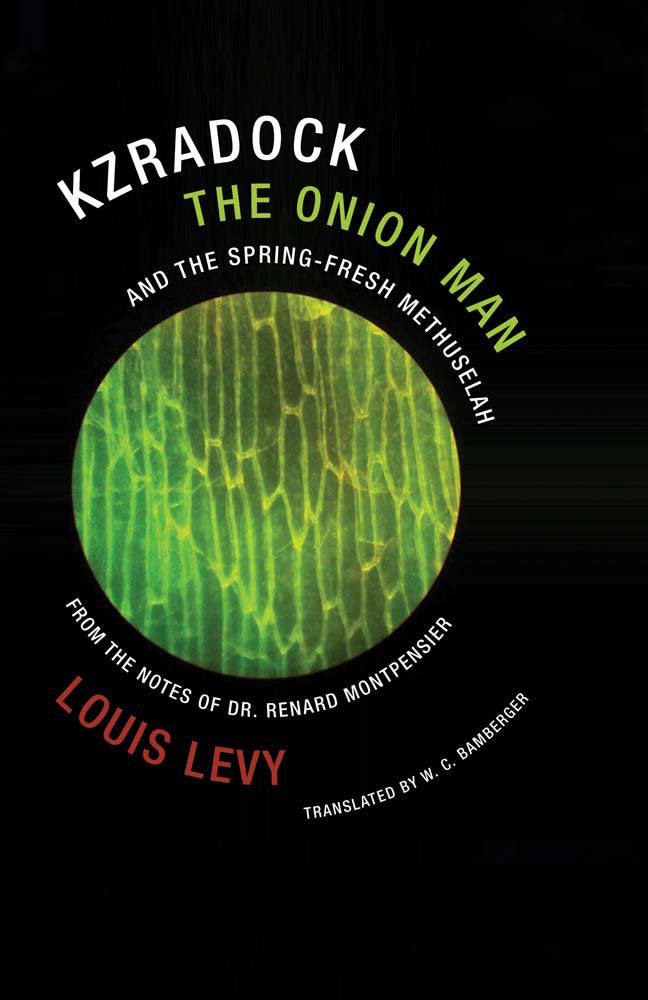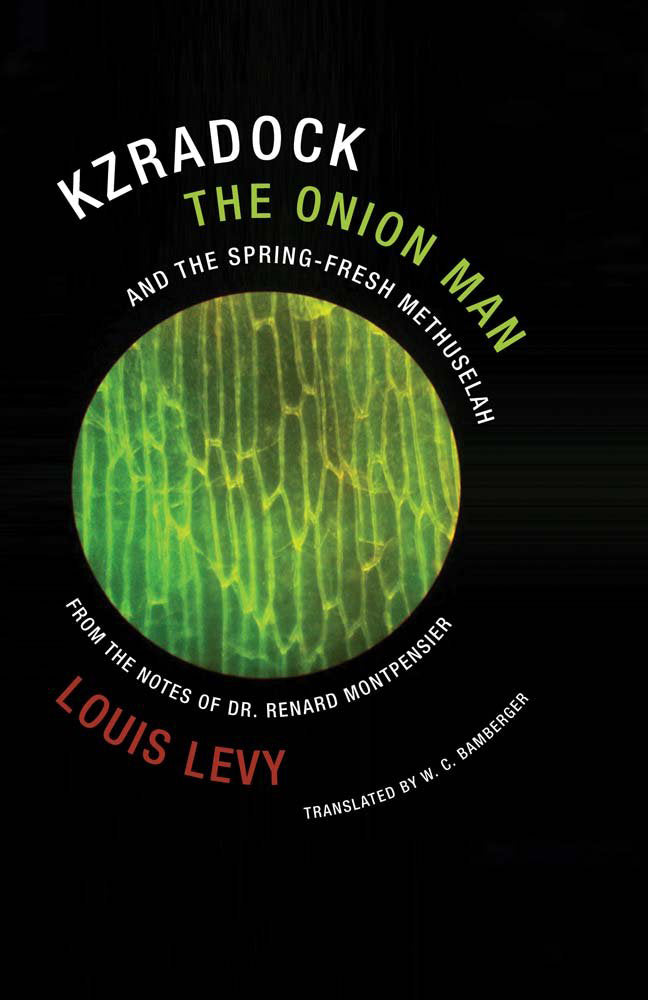Kzradock the Onion Man and the Spring-Fresh Methuselah
Kzradock the Onion Man and the Spring-Fresh Methuselah
Louis Levy
Couldn't load pickup availability
Kzradock the Onion Man and the Spring-Fresh Methuselah: From the Notes of Dr. Renard Montpensier / Translated, with an afterword, by W. C. Bamberger / March 2017 / 4.5 x 7, 152 pp. / 978-1-939663-28-3
Originally published in Danish in 1910, Kzradock the Onion Man and the Spring-Fresh Methuselah is a fevered pulp novel that reads like nothing else of its time: an anomaly within the tradition of the Danish novel, and one that makes for a startlingly modern read to this day. Combining elements of the serial film, detective story, and gothic horror novel, Kzradock is a surreal foray into psychoanalytic mysticism.
Opening in a Parisian insane asylum where Dr. Renard de Montpensier is conducting hypnotic séances with the titular Onion Man, the novel escalates quickly with the introduction of battling detectives, violent murders, and a puma in a hallucinating movie theater before shifting to the chalk cliffs of Brighton. It is there that the narrator must confront a ghost child, a scalped detective, a schizophrenic skeleton, a deaf-mute dog, and a manipulative tapeworm in order to properly confront his own sanity and learn the spiritual lesson of the human onion.
When Gershom Scholem read the novel in its 1912 German translation on the recommendation of Walter Benjamin, he could only conclude: “This is a great book, and it speaks a formidable language… This book lays out the metaphysics of doubt.”
Louis Nicolai Levy (1875–1940) was a Danish author, playwright, foreign correspondent, and theater critic who experimented with a wide variety of literary genres, from prose poetry to nursery rhymes to philosophical novels. Though a central literary figure and screenwriter in Copenhagen in the early twentieth century, Levy remains little known today.
Press
“An appealing, bizarre little read.”
—M. A. Orthofer, The Complete Review
“A vegetal mechanism which sucks up its surroundings with all the discernment of an Electrolux—early psychiatry, Spiritualism, megalopolis paranoia, the fin de siècle prose-poem, criminology and androgyny—Kzradock is the revenge of the wreckage of the prior century’s obsessions jammed into that most modern of forms, the detective procedural.”
—Martin Billheimer, Counterpunch


